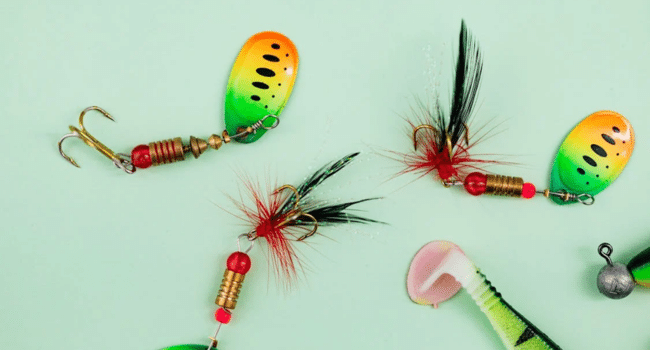Table of Contents
Fly fishing is an engaging experience that profoundly connects people to the natural world, not only a pastime. This angling technique presents an unmatched chance for people who find peace and tranquility in nature to connect with the surroundings. Fly fishing allows exploration of both the natural world and the self, regardless of the peace of a mountain stream or the width of an open river.
The Art of Fly Fishing
Fly fishing is a type of angling that uses a lightweight artificial fly to catch fish. Its methodology and tools set it apart from traditional fishing. Fly fishers employ long, flexible rods, specialty lines, and delicate flies thrown with a particular technique. This approach calls for not only physical agility but also a strong awareness of the water, the fish, and the surroundings. Every cast is created precisely since the fly has to resemble the natural insects and animals fish eat.
A whole-sensory experience, fly fishing puts anglers right in the middle of nature. From the sound of the water running around the rocks to the rustle of leaves in the breeze, every component of the surroundings contributes to the experience. The technique lets the fisherman stay aware of their surroundings and deliberately ponder every cast, so enabling times of introspection. The beauty of the surroundings improves the enjoyment of the activity, therefore transforming every fishing excursion into a study of both the environment and personal connection to the ground.
Understanding the Environment
One of the most important features of fly fishing is the bond that it builds with the natural world. Anglers worry not only about the fish they capture but also about the sustainability and general state of the nearby ecosystems. Effective fishing depends on an awareness of water conditions, seasonal trends, and the local animals. Fly fishing sometimes occurs in isolated locations, such as peaceful rivers or mountain streams, where the surrounding environment is unspoiled and unaltered.
Fly fishermen serve not only to catch but also to monitor and defend the waters where their prey resides. Many fly fishermen support sustainable practices and conservation by serving as stewards of the rivers and lakes they visit. Beyond the activity of fishing, this relationship with the environment helps one to feel responsible for maintaining the habitats supporting not only fish but also the larger ecosystem.
The Physical and Mental Benefits
Fly fishing is frequently complimented for its physical and mental advantages. The exercise itself provides a full-body workout since frequent fly-casting calls for balance, strength, and coordination. Another great low-impact workout that can boost muscle endurance and cardiovascular health is negotiating rocky streams or wading through water.
Apart from the physical advantages, fly fishing is well-known for its psychological and emotional ones. The contemplative aspect of the activity helps people to relax, empty their heads, and concentrate on the here and now. Fly fishing offers many anglers a therapeutic escape, a reprieve from the demands and complexity of daily life. Casting the line, waiting for a bite, and reacting to the natural rhythms of the water helps one develop mindfulness a quality connected to better mental health.
The Accessibility of Fly Fishing
Fly fishing is becoming more and more accessible to a larger audience, even though it has long been connected with the elite and those with specific understanding. Beginning fly fishing schools, guided trips, and internet resources have helped novices pick up the skill more easily. Many areas have developed initiatives teaching immigrants responsible fishing techniques, hence increasing the inclusive nature of the pastime. You can search popular fishing access Bozeman spots that provide lots of chances for both experienced and novice fishermen to enjoy the activity.
As fly fishing keeps becoming more and more popular, its accessibility has helped fishermen build a feeling of community. Local fishing clubs, social media groups, and internet forums provide venues where people can exchange their experiences, grow with one another, and help conservation initiatives. One of the special features of fly fishing is this feeling of camaraderie since it is a sport that gathers individuals over their common passion for the outdoors and nature.
Fly Fishing as a Lifelong Pursuit
Fly fishing is one of the most intriguing sports since it is a lifelong pursuit. Whether you’re casting your first fly or have been fishing for decades, there’s always something new to discover, enjoy, and learn. Even the most experienced anglers continue to improve their techniques; being an outstanding fly fisherman takes years of practice. Fly fishing is a lifelong love because of this mentality of continuous learning and progress.
Fly fishing evolved over time into a journey beyond the simple act of catching fish. For many fishermen, the sport becomes a way of life, allowing them to explore new waterways, discover remote fishing areas, and learn from the environment’s ever-changing rhythms. The experience evolves over time, and fly fishing becomes more about connection to nature and calm enjoyment of the outdoors.
Conclusion
Fly fishing provides a means for people to interact meaningfully with the surroundings, therefore opening a gateway to nature. Its special mix of attention, patience, and ability lets people connect with the natural world and develop a strong respect for it. As fishermen learn to protect the waters they fish in, the activity promotes environmental stewardship in addition to personal development. Fly fishing provides a spectrum of rewards that make it far more than just a hobby, whether they are the physical advantages, the mental clarity, or the connection to the earth.
Image Source – Pexels
